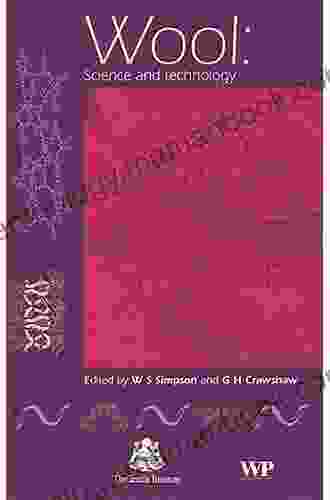Estuary English Dialect Levelling in Southern Great Britain: An In-Depth Exploration

Estuary English is a dialect of English spoken in the South East of England, particularly in the Greater London area. It is characterized by a number of features, including the use of diphthongs, the omission of the /h/ sound, and the use of the 'ing' ending. Estuary English has been the subject of much research in recent years, as it is seen as a symbol of the changing nature of English in the UK.
4 out of 5
| Language | : | English |
| File size | : | 900 KB |
| Text-to-Speech | : | Enabled |
| Screen Reader | : | Supported |
| Enhanced typesetting | : | Enabled |
| Print length | : | 16 pages |
Estuary English: A Description
Estuary English is a relatively new dialect of English, having emerged in the early 20th century. It is thought to have originated in the working-class communities of East London, and has since spread to other parts of the South East. Estuary English is now spoken by a significant proportion of the population of London and the surrounding area.
The most distinctive features of Estuary English are its use of diphthongs and its omission of the /h/ sound. Diphthongs are sounds that are made up of two vowel sounds, such as the 'ei' sound in the word 'say'. Estuary English speakers use diphthongs in a number of words, including 'London' (/ˈlʌndən/),'house' (/ˈhaʊs/),and 'time' (/ˈtaɪm/).
The omission of the /h/ sound is another characteristic feature of Estuary English. This sound is often dropped at the beginning of words, such as in 'house' (/ˈaʊs/) and 'have' (/ˈæv/).
In addition to these two main features, Estuary English also has a number of other characteristic features, including:
* The use of the 'ing' ending on verbs, even in cases where the standard form of English would use the '-ing' ending, such as in 'I'm going to the shop' (/ˈaɪm ˈgəʊɪŋ tə ðə ʃɒp/) * The use of the word 'like' as a discourse marker, such as in 'I was like, "What are you ng?"' (/aɪ wɒz laɪk, ˈwɒt ər juː ˈduːɪŋ?/) * The use of the word 'innit' as a tag question, such as in 'It's a nice day, innit?' (/ɪts ə naɪs deɪ, ˈɪnɪt?/)
The Spread of Estuary English
Estuary English has spread rapidly in recent decades, and is now spoken by a significant proportion of the population of Southern Great Britain. This spread is due to a number of factors, including:
* The increasing mobility of the population * The rise of mass media, which has helped to spread Estuary English to all parts of the country * The influence of London, which is a major cultural and economic centre
The spread of Estuary English has had a significant impact on the English language in the UK. It has led to the decline of traditional regional dialects, and has helped to create a more standardised form of English.
Estuary English and Dialect Levelling
The spread of Estuary English is part of a wider trend of dialect levelling in the UK. This trend is characterized by the decline of traditional regional dialects, and the emergence of a more standardised form of English.
There are a number of factors that have contributed to dialect levelling in the UK, including:
* The increasing mobility of the population * The rise of mass media * The influence of London * The education system
The education system plays a particularly important role in dialect levelling. The standard form of English is taught in schools, and this has helped to spread Estuary English to all parts of the country.
The spread of Estuary English has had a number of consequences, including:
* The decline of traditional regional dialects * The emergence of a more standardised form of English * The loss of linguistic diversity
The decline of traditional regional dialects is a matter of concern for some linguists, as it represents the loss of a valuable part of our cultural heritage. However, the emergence of a more standardised form of English has also had some positive consequences, such as making it easier for people from different parts of the country to communicate with each other.
Estuary English is a relatively new dialect of English that has spread rapidly in recent decades. This spread is part of a wider trend of dialect levelling in the UK, which is characterized by the decline of traditional regional dialects and the emergence of a more standardised form of English. The spread of Estuary English has had a significant impact on the English language in the UK, and is likely to continue to have a major impact in the future.
4 out of 5
| Language | : | English |
| File size | : | 900 KB |
| Text-to-Speech | : | Enabled |
| Screen Reader | : | Supported |
| Enhanced typesetting | : | Enabled |
| Print length | : | 16 pages |
Do you want to contribute by writing guest posts on this blog?
Please contact us and send us a resume of previous articles that you have written.
 Top Book
Top Book Novel
Novel Fiction
Fiction Nonfiction
Nonfiction Literature
Literature Paperback
Paperback Hardcover
Hardcover E-book
E-book Audiobook
Audiobook Bestseller
Bestseller Classic
Classic Mystery
Mystery Thriller
Thriller Romance
Romance Fantasy
Fantasy Science Fiction
Science Fiction Biography
Biography Memoir
Memoir Autobiography
Autobiography Poetry
Poetry Drama
Drama Historical Fiction
Historical Fiction Self-help
Self-help Young Adult
Young Adult Childrens Books
Childrens Books Graphic Novel
Graphic Novel Anthology
Anthology Series
Series Encyclopedia
Encyclopedia Reference
Reference Guidebook
Guidebook Textbook
Textbook Workbook
Workbook Journal
Journal Diary
Diary Manuscript
Manuscript Folio
Folio Pulp Fiction
Pulp Fiction Short Stories
Short Stories Fairy Tales
Fairy Tales Fables
Fables Mythology
Mythology Philosophy
Philosophy Religion
Religion Spirituality
Spirituality Essays
Essays Critique
Critique Commentary
Commentary Glossary
Glossary Bibliography
Bibliography Index
Index Table of Contents
Table of Contents Preface
Preface Introduction
Introduction Foreword
Foreword Afterword
Afterword Appendices
Appendices Annotations
Annotations Footnotes
Footnotes Epilogue
Epilogue Prologue
Prologue Carol Ann Duffy
Carol Ann Duffy Cendrine Marrouat
Cendrine Marrouat Kelsey Mcknight
Kelsey Mcknight Sergei Guriev
Sergei Guriev Dawn Lee Garzon Maaks
Dawn Lee Garzon Maaks Donna Maher
Donna Maher Leotie Hicks
Leotie Hicks Sarah Mahmood
Sarah Mahmood George Monbiot
George Monbiot Ll Davis
Ll Davis Charles Larpenteur
Charles Larpenteur David Mamet
David Mamet Brittany White
Brittany White Christopher Okigbo
Christopher Okigbo Kirsten Corley
Kirsten Corley Charlotte De Lattre
Charlotte De Lattre J L Brown
J L Brown Hannah Vandegrift Eldridge
Hannah Vandegrift Eldridge Jefferson Morley
Jefferson Morley Ronald Kessler
Ronald Kessler
Light bulbAdvertise smarter! Our strategic ad space ensures maximum exposure. Reserve your spot today!

 Michael SimmonsCommunity Music Therapy In Action And Reflection Ashgate Popular And Folk...
Michael SimmonsCommunity Music Therapy In Action And Reflection Ashgate Popular And Folk... Leslie CarterFollow ·18.9k
Leslie CarterFollow ·18.9k Jon ReedFollow ·17.7k
Jon ReedFollow ·17.7k Theo CoxFollow ·2.2k
Theo CoxFollow ·2.2k Roger TurnerFollow ·17k
Roger TurnerFollow ·17k Carlos FuentesFollow ·16.3k
Carlos FuentesFollow ·16.3k Rex HayesFollow ·4.8k
Rex HayesFollow ·4.8k Vernon BlairFollow ·12.5k
Vernon BlairFollow ·12.5k Barry BryantFollow ·7k
Barry BryantFollow ·7k

 Vernon Blair
Vernon BlairThe Woman I Met in My Dream: An Unforgettable Night of...
As the veil of night...

 Carlos Fuentes
Carlos FuentesThe Ultimate Guide to Healthy Eating for Toddlers: Meal...
As a parent of a...

 Peter Carter
Peter CarterInside My Autistic Mind: A Journey of Self-Discovery and...
Autism spectrum disorder (ASD) is a...

 Isaac Asimov
Isaac AsimovA Journey Through Jane Austen's Literary Masterpieces:...
Jane Austen, the renowned English...

 Hank Mitchell
Hank MitchellAdvancements in Textiles: Science and Technology by...
The textile...

 Troy Simmons
Troy SimmonsRecovery Road: An Odyssey of Hope and Redemption by...
Recovery Road is a...
4 out of 5
| Language | : | English |
| File size | : | 900 KB |
| Text-to-Speech | : | Enabled |
| Screen Reader | : | Supported |
| Enhanced typesetting | : | Enabled |
| Print length | : | 16 pages |










